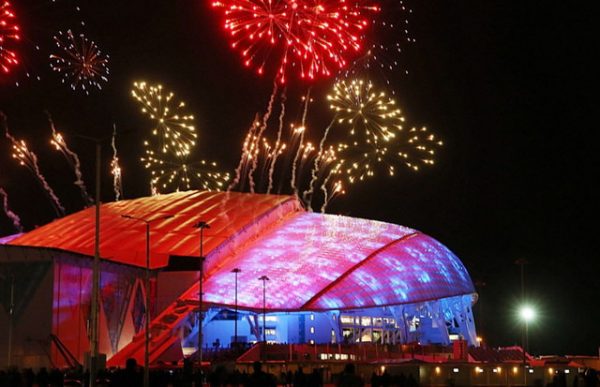
Large-scale sporting events, including the Winter Olympics and the Super Bowl, are in the international spotlight this winter. These mega-events are often heralded for promoting economic mobility and social cohesion, and cities across the world bid for events like the Olympics to cement their identities as world-class cities. For sociologists, these events also highlight how inequality operates in urban spaces.
Under the assumption that stadium construction promotes local growth, many cities rely on both tax subsidies from their local populace along with private investment. Financial investors tout the unprecedented trend of stadium-building in the past decades as opportunities for job growth, tourism, and other revenue boosts. However, much research suggests that stadiums and major sport events do not have broad economic benefits for their host cities, as benefits tend to be distributed unequally along racial and class lines. While local resistance has grown substantially in recent years, resource-laden investing firms and political coalitions that advocate for such projects are largely successful at squelching these efforts.
- Kevin J. Delaney and Rick Eckstein. 2003. Public Dollars, Private Stadiums: The Battle over Building Sports Stadiums. Rutgers University Press.
- Jay Scherer. 2016. Resisting the World-Class City: Community Opposition and the Politics of a Local Arena Development. Sociology of Sport Journal 33(1): 39-53.
- Timothy W. Collins and Sara E. Grineski. 2007. Unequal Impacts of Downtown Redevelopment: The Case of Stadium Building in Phoenix, Arizona. Journal of Poverty 11(1): 23-54.
The role of sporting events in perpetuating inequality demonstrates how the geography of urban space reflects a deepening divide between the “haves” and “have nots.” For example, sociologists demonstrate that cities often implement policies and practices that criminalize and punish behaviors of homeless individuals in public spaces. Other studies indicate that sporting events in the United States, especially the Super Bowl, contribute to the militarization and surveillance of public space in the post-9/11 era.
- Katherine Beckett and Steve Herbert. 2009. Banished: The New Social Control in Urban America. Oxford University Press.
- Kimberly S. Schimmel. 2006. Deep Play: Sports Mega‐Events and Urban Social Conditions in the USA. The Sociological Review 54(2): 160-174.
- Patrick Sharkey. 2013. Stuck in Place: Urban Neighborhoods and the End of Progress Toward Racial Equality. University of Chicago Press.
So, as we watch these sporting spectacles from our television screens, see them up close (if we’re lucky), or experience the negative consequences outlined above (if we’re not), it is important to be aware of how these events are manifestations of both society’s triumphs and social ills.

Comments